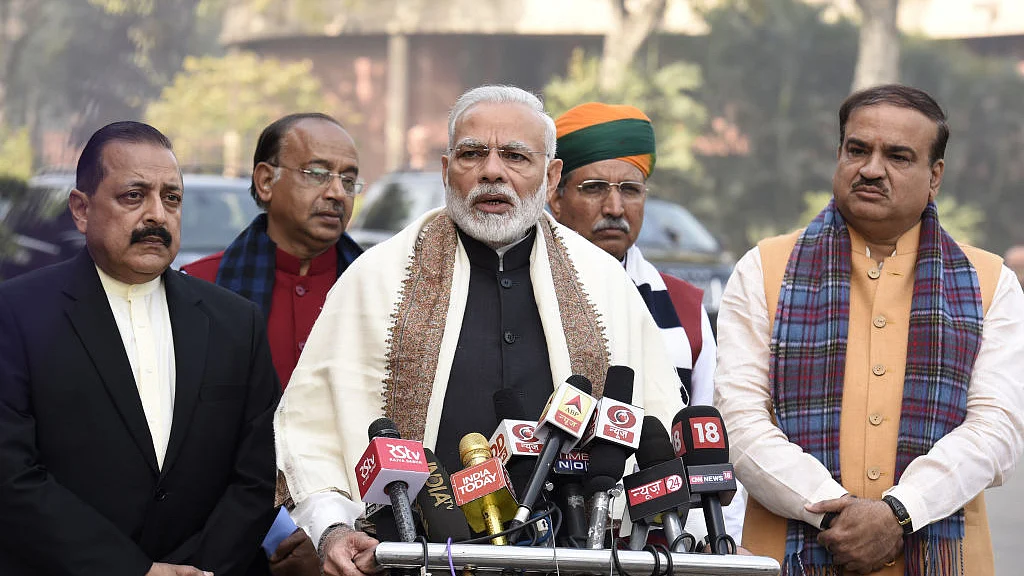Why the Modi govt’s lateral recruitment of Joint Secretaries is suspect
Can a government which has been selective in judicial appointments be expected to be non-partisan with appointments of bureaucrats?

In 2007, while working with a television news channel, we did a series called ‘Govt@Work’. The idea was to recognise district collectors who had done innovative and impactful work, going beyond their remit. (When we asked then Finance Minister P Chidambaram for an endorsement, he jokingly said the title was a misnomer but gave a message of encouragement). The then Cabinet Secretary, KM Chandrasekhar, provided us with verified examples of noteworthy work that had been shortlisted for acknowledgment on Civil Services Day.
Among these were Lokvani, an internet-based online grievance redress system set up by an alumnus of IIT, Kanpur, when he was the collector of Sitarpur in UP. The kitchen gardens attached to the anganwadis of Baroda district provided fresh, leafy vegetables to under-nourished kids. Rajendra Kumar, former Principal Secretary to Delhi Chief Minister Arvind Kejirwal - also of IIT, Kanpur - had in his previous posting used information technology to improve learning outcomes in Delhi government schools, and also to post teachers closer to their places of residence.
We also did an episode on IIM-G. This was a group of about a hundred post-graduate diploma holders from the Indian Institutes of Management (IIMs) in government. They sought assignments where their knowledge of business management could be put to use, like in structuring public-private partnership projects, or turning around state-owned companies in difficulty. One of them did a study of Nava Sheva International Container Terminal at Jawaharalal Nehru Port Trust and concluded that because of regulatory laxity (or worse), the private consortium which was operating the terminal had earned a return on equity of more than 100 per cent a year between 2002 and 2005 against the permissible 20 per cent.
The dearth of talent within the government is not as dire as made out to be. Many civil servants are professionally qualified or trained. But the services are so organised that officials do not get assignments aligned to their competence, and the freedom to execute them.
Of course there is need to infuse talent from outside the government. At the higher levels of the bureaucracy there should be lateral entry and exit. But is this government going about it the right way? On June 10, it has advertised for ten joint secretaries to be recruited directly for a term of three years extendable to five.
A few officials, former and current, described the move variably as good or fantastic. But there were also caveats. Should the government do the recruitment? In a system rife with nepotism and favouritism, shouldn’t the recruitment be done fairly and transparently by a body mandated by the Constitution, that is, the Union Public Service Commission? One might quibble with UPSC’s merit criteria but everyone gets an equal jab at it. Will the government look only at merit or also at ideological orientation? What about conflicts of interest?
Our governments are no respecters of domain knowledge. An official said that in 2001, he found that of his 1983 batch of 130 recruits, 37 had on their own acquired higher professional qualifications, mostly abroad. But, of six who had specialised in foreign trade, one was posted in the horticulture department and another was in charge of Hindu religious and charitable endowments. Since he was recalling from memory 17 years later, some of the details may have deviated slightly from facts, but the point is there is misallocation of human resources—perhaps deliberate—in the government, and not just a dearth of them.
An example of lateral recruits doing a stellar job is the handling of Satyam Computer Services after its founder publicly admitted that he had swindled the company. Prime Minister Manmohan Singh’s government appointed a committee of wise men headed by Kiran Karnik, former president of the IT industry lobby, Nasscom, and comprising business leaders like Deepak Parekh of Housing Finance Development Corporation. They were able to contain the panic, stabilise the company and sell it to the Mahindra & Mahindra group. But this process was not followed for, say, grooming Air India for acquisition by private investors, or cleaning up the Ganga.
Lateral entrants like Raghuram Rajan (former RBI Governor) or Chief Economic Adviser Arvind Subramanian, are respected for their competence. But can a government which has been selective in judicial appointments be expected to be non-partisan with appointments of bureaucrats?
Follow us on: Facebook, Twitter, Google News, Instagram
Join our official telegram channel (@nationalherald) and stay updated with the latest headlines